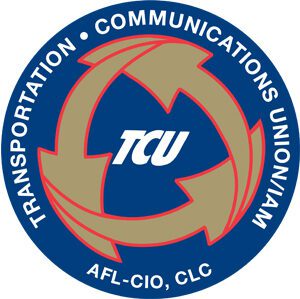The American Recovery and Reinvestment Act of 2009, popularly known as the Stimulus Bill, was signed into law February 17, by President Barack Obama. The final bill contains billions of funds for rail and transit projects, and should lead to the creation of new jobs on Amtrak, commuters, transit agencies, and even freight railroads.
President Obama personally and successfully fought to include in the final bill $8 billion in new funding for high-speed passenger rail projects, an unprecedented commitment to the nation’s passenger rail future. This money can be used by states all over the country for high speed rail projects.
TCU will be working closely with Amtrak to ensure that Amtrak participates in the operation of new lines and construction and repair of new equipment, wherever possible.
But high speed rail was not the only winner. Overall, $17 billion was provided for the rail and transit industry, including:
• $8.4 billion for urban and rural transit
• $1.5 billion for grants for a national surface transportation system
• $8 billion for high-speed rail corridor investments
• $1.3 billion for Amtrak, high speed rail and intercity state passenger rail grants
• $288 million for infrastructure tax bonds for high-speed rail facilities for trains that exceed 150 miles per hour
This focus on rail as the most energy-efficient, environmentally friendly way to rebuild our nation’s energy infrastructure was championed by the President and congressional Democrats. Not a single Republican in the House, and only three in the Senate, got on board. Many Republicans blasted the inclusion of money for rail as “pork barrel” spending, saying they’d rather see it go to capital gains cuts for the wealthiest Americans.
Another important victory for rail workers in the stimulus package is an extension of railroad unemployment benefits. The original bill only extended non-rail unemployment benefits. The TCU Legislative Department was instrumental in having the unemployment extension apply to rail workers.
Also included in the package is $250 million in funding for the Office of the Job Corps. This funding is designated as construction, rehabilitation and acquisition, up to 15 percent can be used for operational expenses at the discretion of the Secretary of Labor. Job Corps leaders, members and staff conducted intensive outreach efforts on Capitol Hill regarding their operational funding shortfall. This funding will begin to address those needs. TCU runs one of the nation’s most successful Job Corps programs.
Click here for a summary of the act from Congress.
Click here for a summary released by Senator Mikulski (D-MD).
Click here for a summary from the Railroad Retirement Board.
Click here for a summary from the NARP.
Click on the American Recovery and Reinvestment act releases from the White House by topic.
Overview Building Infrastructure
Clean Energy Create Jobs and Help Families
Education Health Care
Jobs State-by-State Impact Jobs by Congressional District

